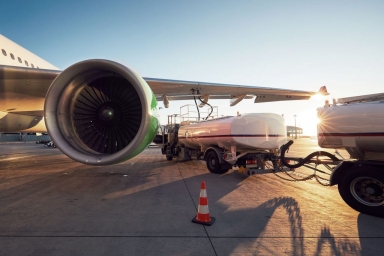Petrochemical
Indaba to use Haldor Topsoe technology for production of sustainable aviation fuel
The facilities are expected to begin production of SAF in 2024 and capacity of the plants is 6500 barrels per day at each location
-
By ICN Bureau | January 14, 2022
Indaba Renewable Fuels (Indaba) will build two greenfield refineries in California and Missouri to produce Sustainable Aviation Fuel (SAF) utilizing Topsoe’s HydroFlex technology.
The facilities are expected to begin production of SAF in 2024. The capacity of the plants is 6500 barrels per day at each location.
Topsoe will also provide its H2bridge hydrogen technology for both facilities that further replaces fossil fuels with renewable liquids like LPG or naphtha to lower the carbon intensity of the products.
“We are excited to provide Indaba with refining technology and catalysts as they initiate production of renewable fuels in the United States. Our HydroFlex solution is designed to produce sustainable aviation fuel (SAF) based on renewable feedstock, with a minimal Carbon Intensity (CI score) compared to traditional petroleum aviation fuel,” says Henrik Rasmussen, Managing Director, The Americas, Haldor Topsoe Inc.
The solution enables Indaba’s facilities to accept a wide variety of feedstocks as well as the production of multiple low carbon Index (CI) renewable fuels.
“We are thrilled to select Haldor Topsoe’s market-leading HydroFlex technology for these projects that will enable us to lead the aviation industry’s transition to sustainable and low emissions fuel. These projects will source feedstocks from waste products to create low carbon emission SAF for decades,” says Geoff Hirson, Chief Executive Officer, Indaba Renewable Fuels.
With HydroFlex, refiners can convert low value feedstocks to renewable fuels that qualify for Low Carbon Fuel Standard (LCFS) credits. The innovative HydroFlex process layout offers lower capital expenditure (CAPEX), but also a lower energy consumption during operation, resulting in a lower Carbon Index (CI).
The H2bridge hydrogen technology is based on a modular and highly efficient convection reformer technology. It delivers a circular solution to refineries and biorefineries by replacing fossil feedstocks with renewable LPG or naphtha to produce renewable hydrogen, thereby generating significant greenhouse gas emissions savings and lower the carbon intensity of the renewable fuels produced in the HydroFlex unit.
